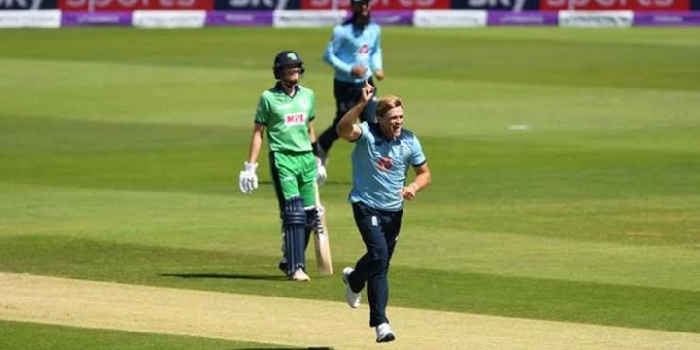New Delhi, Jun 25: India spinner Ravichandran Ashwin on Thursday called the 1983 World Cup win as the 'landscape' changing moment for the game of cricket in the country.
Today, India is celebrating the completion of the 37 years of the maiden World Cup triumph under the leadership of Kapil Dev.
"Today 37 years ago, changed the cricketing landscape in India. Thank you @therealkapildev and team for making the game a career for many of us today. Deeply indebted," Ashwin tweeted.
In 1983, in the finals between India and West Indies, the latter won the toss and opted to bowl first.
The Kapil Dev-led side managed to score just 183 runs as Andy Roberts took three wickets while Malcolm Marshall, Michael Holding, and Larry Gomes picked up two wickets each.
Defending 183, India did a good job of keeping a check on the Windies run flow, reducing the side to 57/3.
Soon after, the team from the Caribbean was reduced to 76/6 and India was the favourites from there on to win the title.
Mohinder Amarnath took the final wicket of Michael Holding to give India their first-ever World Cup title win.
In the finals, West Indies was bowled out for 140, and as a result, India won the match by 43 runs.
Kapil Dev lifting the trophy at the balcony of Lord's Cricket Ground still remains an image to savour for all the Indian fans.
In the finals, Mohinder Amarnath was chosen as the Man of the Match as he scored 26 runs with the bat and also picked up three wickets with the ball.
India has been the regular participant in the World Cup from its beginning to the latest edition. The first edition was held in 1975 and from there on, it has taken place after a span of every four years.
West Indies won the first two World Cup titles (1975, 1979) and was the runner-up in 1983. India has won the title two times, in 1983 and in 2011.
MS Dhoni captained the 2011 team to win their second title after 28 years. Australia has won the tournament five times (1987, 1999, 2003, 2007, and 2015).






Comments
Add new comment